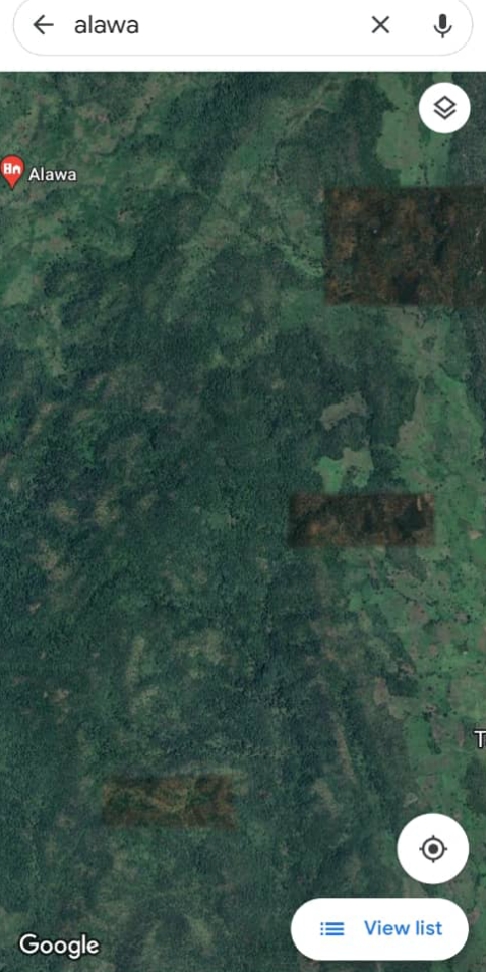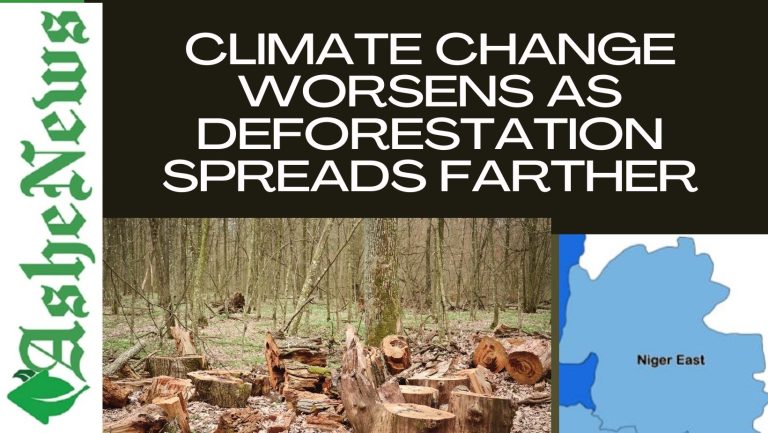Over the years, climate change has rapidly worsened as deforestation encroaches on previously untouched areas. This has resulted in agricultural productivity going down, which is gradually paving the way to food scarcity.
The consequences of increased deforestation are not limited to climate change alone and have started affecting indigenous communities and local populations.
These Indigenous communities and local populations, especially in Niger State, depend on these forests for their livelihoods and face displacement and loss of cultural heritage.
The destruction of vast forested areas has had catastrophic implications for countless species, pushing many toward the brink of death.
Abdulrasheed Alawa, a resident of Alawa in Shiroro local government area of Niger state, lamented that the green forest and vegetation have gone, saying, “13 years ago, this land was occupied by green forest with good sighting vegetation; we used to call it a leisure spot, but now, friendly animals could no longer be found.
“Today, the trees have been cut off for commercial and domestic use. And it is evident that with trees disappearing, our agricultural productivity keeps going down, paving the way to food scarcity.”
Experts warn that the growing destruction of forests is adding to the already existing consequences of global warming, pushing our planet Earth towards an irreversible tipping point.
As the deforestation rate rises steeply, previously aesthetic green locations are now experiencing the devastating effects of forest loss.
Tropical rainforests, traditionally known as the lungs of the planet due to their significant role in regulating climate patterns, are being felled at an alarming rate.
Satellite data collected from Google Maps reveals that deforestation is expanding in forestry areas, such as the Dagam, Bataro, Keke, Gaude, and Gyaramiya forests of Niger State. These forestry regions were in full but have now been altered as trees are being cut off, mostly for commercial purposes.

Renowned climate scientist in Nigeria, Dr. Jonathan Maude, warns that deforestation has far-reaching implications for the planet’s climate system.
According to him, when trees are uprooted and burned, enormous amounts of stored carbon are released into the atmosphere, further accelerating global warming. He also adds that forests play a crucial role in regulating rainfall patterns and preventing soil erosion, but that natural mechanism is being destroyed at an alarming rate.
Maude, who is an environmentalist and leading expert on climate change, states, “The expansion of deforestation into areas previously untouched by such activities is an alarming trend. Not only are we losing invaluable ecosystems and biodiversity, but we are also intensifying the impacts of climate change. It is like throwing gasoline on a blazing fire.”
Indigenous communities and local populations that depend on these forests for their livelihoods face displacement and the loss of cultural heritage. Additionally, the destruction of vast forested areas has catastrophic implications for countless species, pushing many toward the brink of death.
The continuous emission of fumes and other activities that send heatwaves to the ecosystem in Delta and Rivers states in the eastern region of Nigeria further contributes to climate change.
The practice of indiscriminate felling of trees without replanting in the Niger Delta mangroves further frustrates the ecosystem. These, in return, distort rain patterns and stir the region into dense and irregular rainfall on deforested ground, causing soil erosion.
The Director of Agriculture and Natural Resources in Shiroro Local Government, Halidu Magaji Tegina, said that unchecked deforestation has not only disrupted the natural carbon sequestration process but also threatened the survival of indigenous species.
“Our aesthetic Niger Delta mangroves, crucial for mitigating soil erosion and preserving biodiversity, have degraded from their former selves. It is high time we initiate a collective effort to restore these vital ecosystems.”
To address this growing crisis, environmental activists and scientific organizations are urging governments and corporations to strengthen efforts to combat deforestation.
They emphasize the importance of sustainable practices, reforestation initiatives, and transitioning to renewable energy sources to reduce overall carbon emissions.
The urgency to act cannot be overemphasized. If deforestation continues at its current pace, experts fear that we may reach a point of no return.
The devastating impacts on both the global climate and human well-being would become irreversible, intensifying storms, droughts, and heatwaves and disrupting entire ecosystems.
It is high time that international bodies, governments, and industries come together and re-strategize to address deforestation as a top priority.
Failure to do so will result in a global catastrophe, leaving future generations to struggle with the irreversible consequences of our actions.


